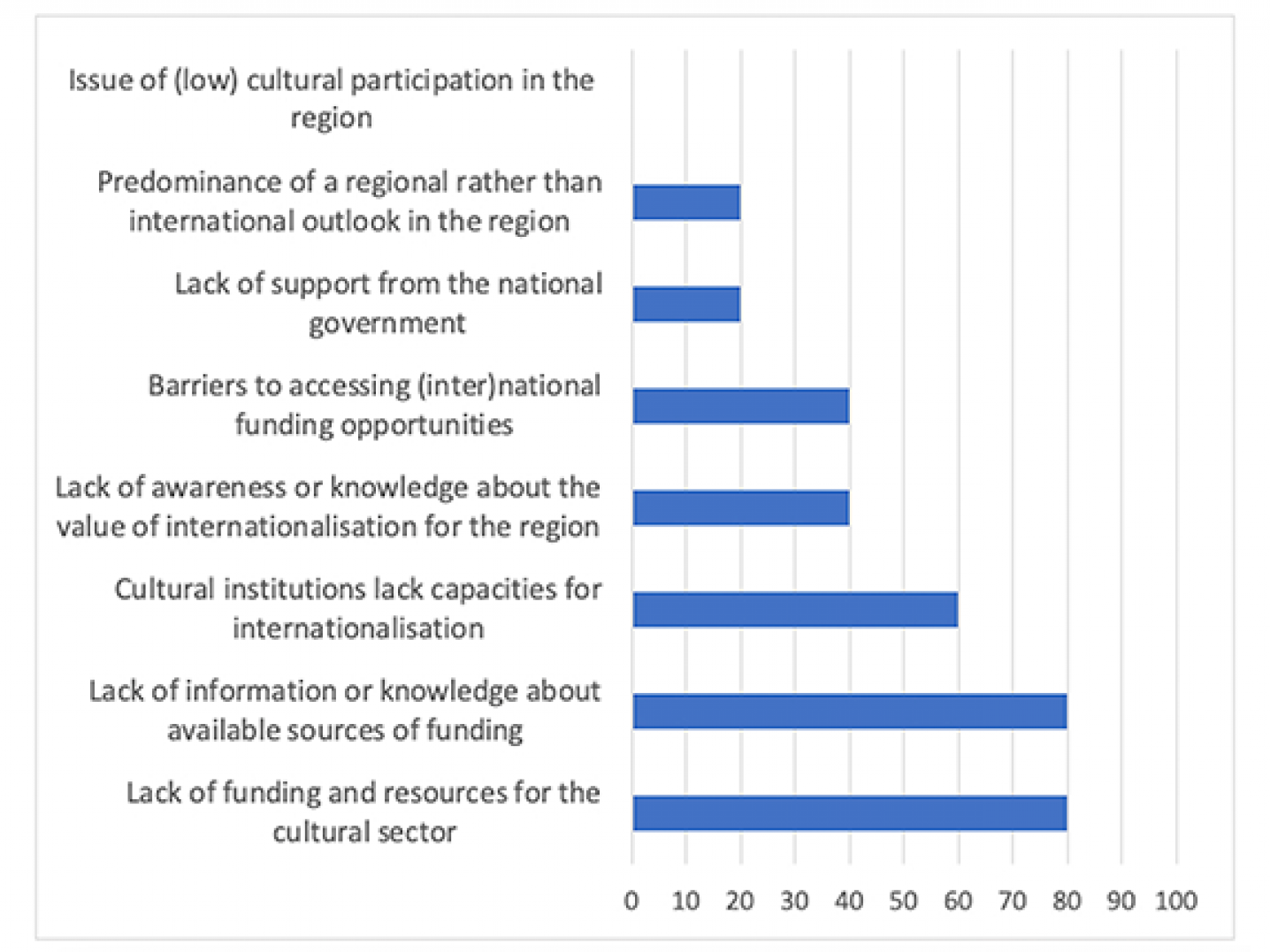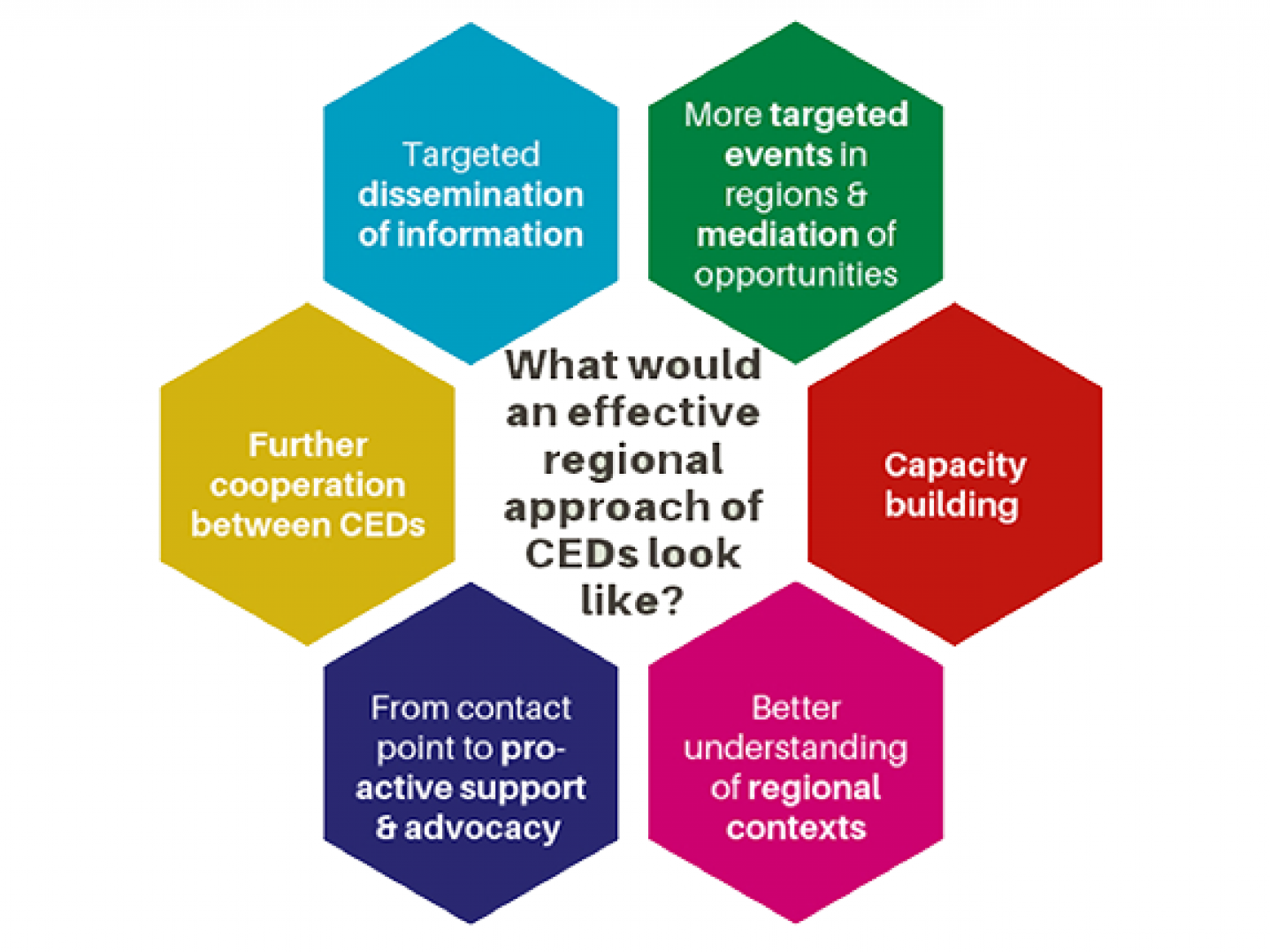
By Liadán Sage
Between April and June 2019, the Creative Europe Desk at DutchCulture conducted a research project on the internationalisation of Dutch creative regions. The initiative for this research stemmed from the fifteen regional profiles that were produced in November 2018 at the invitation of Minister van Engelshoven. Many of the profiles submitted by the Dutch regions set out their international ambitions as well as the challenges they experience in achieving these. Some regions also recognise the role of culture in internationalisation processes and are already active in international cultural projects.
The Creative Europe programme presents many opportunities which can be harnessed by regions and their cultural organisations and actors. Therefore, the Creative Europe Desk (CED) of the Netherlands, with its global connections and local insights of cultural activities in many of the Dutch regions, is well-placed to support the creative regions in fulfilling their international ambitions.
The relevance of cultural internationalisation for regions
For the creative industries, internationalisation does not always mean export. Rather, cultural internationalisation entails the opportunity for creative actors and organisations to transcend national borders, exploring new markets and engaging with artists and projects in other countries.
Through this process, artists can further stimulate themselves and the creative process, and new products and ideas can arise. This can, in turn, be of value for regions, as it increases the value and visibility of the region’s cultural sector and can stimulate further development locally.
Framework of the research
The ‘5 Ps of cultural internationalisation’ were developed as a framework by which to assess the degree of internationalisation of each Dutch creative region. The 5 Ps are: Profile, Policy, People, Prosperity and Partnerships. An assessment of each creative region’s degree of cultural internationalisation can be found in the final report of this research. It is hoped that this can provide a starting point for regions to identify their strengths and weaknesses in this area.

The key challenges
Through surveys of several Dutch creative regions as well as ten CEDs, several key obstacles to internationalisation were identified. It emerged that a lack of funding and resources for the cultural sector and its internationalisation, together with a lack of information about available sources of funding, are the main challenges faced by creative regions in accessing international opportunities. This is in spite of the fact that 90% of CEDs organise information sessions about Creative Europe and related opportunities as their main regional activity. Another significant challenge that was highlighted is the lack of capacities of cultural institutions for internationalisation.

What can the Dutch CED do?
Based on the results of the surveys and data analysis, several recommendations for CEDs – and specifically the Dutch CED – were presented in the final report, which could improve the efficiency of the service provided by the Dutch CED. These include the following:
- Conduct more targeted events in the regions which facilitate networking between different sectors (acting as a ‘mediator’); also capacity building sessions, to try and address the issue of lacking capacities of cultural institutions to internationalise.
- Cultivate a deeper understanding of regional contexts and their specific needs and challenges.
- Disseminate information in a more targeted way. The Dutch CED acts as an important information point for Dutch cultural organisations; however, by better understanding specific regional contexts, information about available opportunities could be distributed directly to relevant, eligible organisations and stakeholders.
- Enhance existing connections with CEDs that are experienced and active in regional cooperation; share best practices, experiences and promote mutual learning.


